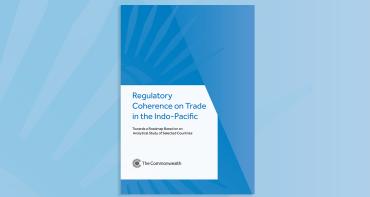The Third Commonwealth Stakeholders’ Conference on Public Debt Management will take place in Johannesburg from 17-19 June 2015.

Expected volatility in the global economy is one of the many scenarios debt managers and financial experts will consider at a Commonwealth conference to rethink public debt.
The Third Commonwealth Stakeholders’ Conference on Public Debt Management, hosted by the Commonwealth Secretariat and the National Treasury of South Africa, will take place in Johannesburg from 17-19 June 2015.
This year’s theme, Public Debt Management in an Uncertain Era, reflects the implications of greater market uncertainty in the post crisis global economy for public debt management and debt sustainability.
Commonwealth Secretary-General Kamalesh Sharma emphasised the importance of the meeting in light of the current financial climate.
He said: “Bringing together leading financial experts and debt managers will enable the sharing of innovative practice and solutions to support better handling of public debt as we move into the new development era.”
Mr Sharma added: “The uncertainty of the present economic situation necessitates a reassessment of existing debt management strategies to ensure that debt burden does not stand in the way of raising living standards across the Commonwealth.
“The Secretariat is at the forefront of steering global advocacy on debt issues. Our pioneering debt management system handles more than USD 2.5 trillion of public debt and is operational in 60 countries, 15 of which are non-Commonwealth.”
Opening the conference, Nhlanhla Musa Nene, South Africa’s Minister of Finance, will deliver the inaugural address.
Hosting of this conference in South Africa is a result of a long-term collaboration between the Secretariat and the National Treasury of South Africa to assist member countries with debt management. Mr Sharma has described the partnership as a practical demonstration of South-South collaboration and assistance.
Experts will focus on the financing implications for developing countries in the transition to the Sustainable Development Goals in view of trade-offs and meeting debt obligations.
Challenges faced by many of the Commonwealth’s small member states will also be addressed with regards to restoring debt sustainability and developing access to domestic debt markets.
Participants will have the opportunity to share experiences and hear the latest thinking on developing feasible policy frameworks for implementing debt strategies, strengthening institutions, improving debt management operations and finding more effective ways to disseminate public debt statistics.
Outcomes of discussions will inform the design of technical assistance offered to member countries by the Secretariat to reform and strengthen debt management.



